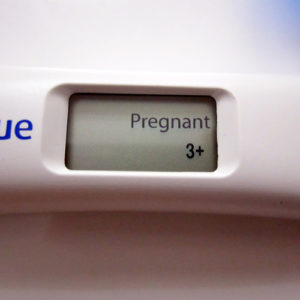In males, there may be no obvious signs or symptoms of infertility, other than the inability to conceive a child. In some males, however, there may be a hormonal imbalance, an inherited disorder, a condition blocking the passage of sperm, or dilated veins around the testicles which may indicate signs of infertility.
Statistics show that approximately one in every six couples will experience fertility problems, and that it’s the male partner in between 30% and 50% of these cases that has the issue with fertility. Fortunately, many causes of male infertility can be reversed by simple lifestyle changes, thus providing huge improvements in sperm count and motility within just a few months. There are cases where surgery may be required, such as varicocele surgery but, overall, it’s still well worthwhile for men to make the required lifestyle changes. It should be noted that not all men with a varicocele suffer from infertility. If you’re concerned about fertility issues, consider getting tested to understand your situation better.
Male infertility can be caused by —
- Sperm passage obstructions: Lack of tubes or obstructions can hinder sperm from successfully reaching the egg for fertilisation. These blockages may be brought on by anatomical anomalies, such as the vas deferens being absent from birth, past infections or surgeries, or the development of scar tissue.
- Hormonal issues: Gonadotrophin, a hormone, is necessary for the development of sperm. This hormone’s levels need to be just right to prevent sperm cell development and maturation problems. Genetic abnormalities, pituitary gland disorders, or particular drugs can all lead to hormonal imbalances.
- Sperm problems: A number of sperm disorders might result in male infertility. Oligospermia, also referred to as low sperm count, describes a decreased sperm count in the ejaculate. Sperm with limited ability to swim and reach the egg are referred to as having poor sperm motility, or asthenospermia. A lack of sperm in the ejaculate is referred to as absent sperm, also known as azoospermia. Genetic causes, infections, hormonal imbalances, or lifestyle choices like smoking, abusing drugs, or consuming too much alcohol can all contribute to these problems.
- Functional issues: Erectile dysfunction, or impotence, can make it difficult or impossible to obtain or sustain the erection required for sexual activity. Fertility problems can also be caused by ejaculation, such as retrograde ejaculation, in which semen exits the penis but enters the bladder. Sperm production and quality might be impacted by testicular issues such trauma or undescended testicles.
- Lifestyle choices, illnesses, and chronic health issues: Male infertility can be caused by many different things. Reproductive function may be hampered by long-term medical disorders such diabetes, renal disease, or liver illness. Fertility can also be impacted by trauma to the spinal cord or reproductive system. The reproductive system can be harmed by diseases like mumps or sexually transmitted diseases like chlamydia or gonorrhoea. Obesity, excessive stress, exposure to pollutants in the environment, and extreme heat to the testicles (from saunas or hot tubs, for example) are examples of bad lifestyle choices. Also frequent use of certain medications can all impact male fertility. Additionally, age can also play a role, as sperm quality and production tend to decline with age.
- Obstructions to the sperm’s passage, such as blockages or the absence of tubes;
- Hormonal problems, such as an insufficient supply of the hormone gonadotrophin;
- Sperm issues, such as low sperm count, poor motility, and absent sperm;
- Functional problems, like impotence, ejaculation issues, problems with the testicles, and so on.
- Chronic health problems, injuries, illnesses, lifestyle choices and various other factors can also play a role in causing male infertility.
Signs and Symptoms of Male Infertility
Most infertile males have no symptoms indicating their infertility, however there are some signs and symptoms that may be associated with male infertility, and these include —
- A lump, swelling, or pain in the testicle area;
- Sexual function issues, such as erectile dysfunction, reduced sexual desire, or difficulty with ejaculation;
- The inability to smell;
- Recurring respiratory infections;
- Gynecomastia (unusual breast growth);
- A low sperm count; or
- Hormonal or chromosomal abnormalities, such as a decrease in body or facial hair.
Male Fertility Can Be Affected by Certain Factors
The following factors may contribute to male infertility —
- Chemicals
Contact with certain types of chemicals in the workplace can reduce fertility. Be very cautious if you work with hazardous chemicals because they can affect your fertility. Be sure to take the appropriate health and safety precautions. - Varicocele
Varicoceles are actually quite common and male fertility can be affected by a varicose vein in the scrotum, which causes overheating. This is easily treatable by surgery. Varicoceles are usually painless and certainly pretty common, especially in young men aged between 15 and 25. - Heat
Male infertility can be caused by overheating the testicles as a result of cycling, a hot environment, using your laptop on your lap, a hot sauna bath, over exercising, etc. A Scrotum Cooling Patch can be beneficial to sperm quality and can help reduce scrotal temperature. - Infections
Some infections have been known to affect male fertility. One example is the testicles can be damaged if a male child or adult gets the mumps. - Smoking
Studies have shown that both men and women who smoke are more likely to suffer fertility problems. People who smoke are more likely to have fertility problems and take longer to conceive than non-smokers, with conception taking longer than non-smokers. It’s also believed that the chemicals contained in cigarettes can be damaging to both sperm and eggs and can affect the health of a baby. - Drugs
It is now known that some prescription drugs can affect fertility in males, so we strongly suggest that you check with your general practitioner as to whether any prescription drug you may be taking could affect your fertility. - Alcohol
Excessive alcohol consumption in both men and women could affect fertility. - Poor Nutrition
Good nutrition and proper food choices are vitally important to any couple trying to conceive — it’s also important to your baby! - Drugs of Abuse
Some illegal recreational drugs, like cannabis, anabolic steroids, and so on, have been shown to adversely affect male fertility. - Stress
Prolonged stress can have a detrimental effect on fertility and overall health. - Accidental Injury
An injury to a male’s testicles can adversely affect fertility. - Dietary Deficiency
Male fertility can certainly be affected by a poor diet and nutritional deficiencies. - Being Overweight
There can be a reduction in fertility in men who are overweight, which may be caused by an overheating effect. - Congenital Disease or Physical Abnormality
Congenital issues from birth, such as damaged or absent testicles, can affect a man’s fertility.
How to Improve Male Fertility
There are many simple life-style changes that men can adopt to improve their fertility.
- Quit smoking, or at the very least drastically reduce your consumption of cigarettes;
- Compulsive over-exercising can adversely affect a male’s fertility; however, moderate exercise is quite acceptable. We strongly suggest that horse riding and prolonged cycling be avoided as these may cause overheating;
- Don’t use your laptop on your lap; instead, use a laptop screen that’s designed to prevent overheating, or alternatively simply put it on a table;
- Avoid saunas and very hot baths. Instead, take a cooler bath or shower;
- It may help to take fertility supplements and multivitamins designed specifically to support male fertility;
- Make sure your undergarments are loose-fitting, and this includes wearing loose trousers;
- Good nutrition is very important, so ensure you eat a healthy, balanced diet. Consider natural supplements like maca root which can boost fertility in both men and women;
- Alcohol consumption should not be excessive; keep it down to under 14 units per week;
- If you are overweight you need to start gradually reducing your weight. There are some good weight-loss classes online, like Weight Watchers and Slimming World, or you can attend classes locally. Statistics show that men who join Weight Watchers are typically very successful at losing weight.
- Illicit drug use is out! Avoid any use of cannabis, anabolic steroids, and so on.
For more comprehensive guidance on preparing for conception, see our guide on planning a pregnancy.
Photo credit: “Worried Man” by Anthony Cunningham for Zoom Baby
Zoom Baby is a leading supplier of Pregnancy Tests and Ovulation Test Kits





